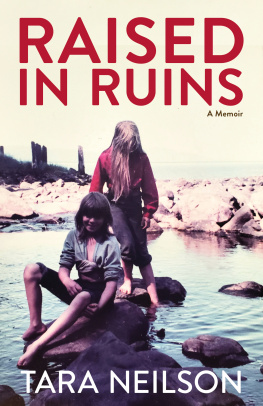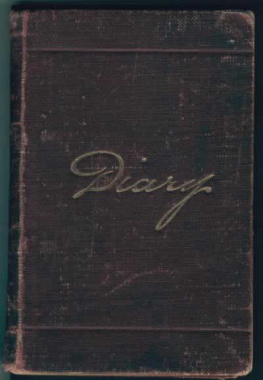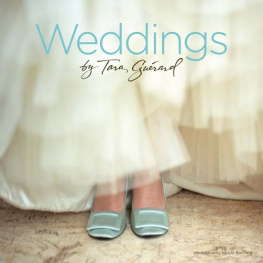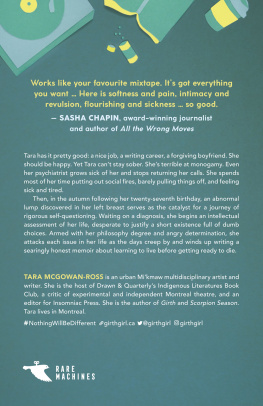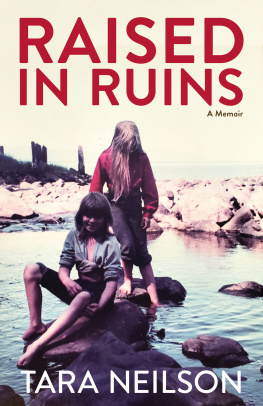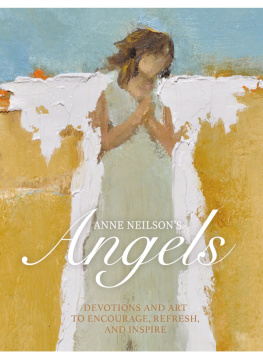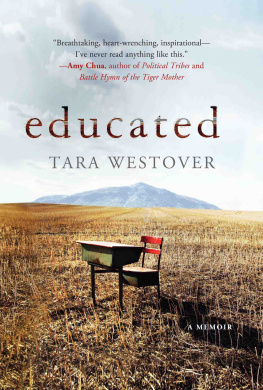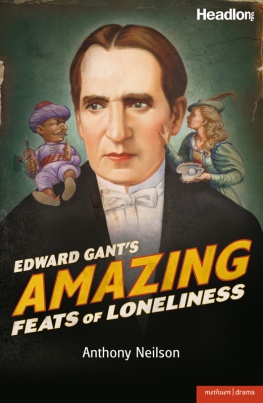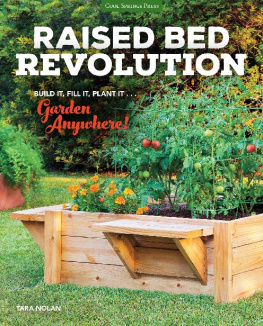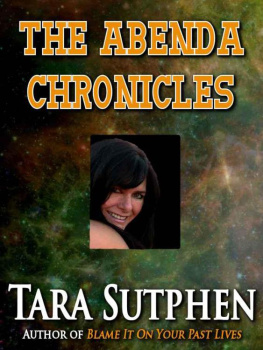Tara Neilson - Raised in Ruins: a memoir
Here you can read online Tara Neilson - Raised in Ruins: a memoir full text of the book (entire story) in english for free. Download pdf and epub, get meaning, cover and reviews about this ebook. year: 2020, publisher: West Margin Press, genre: Non-fiction. Description of the work, (preface) as well as reviews are available. Best literature library LitArk.com created for fans of good reading and offers a wide selection of genres:
Romance novel
Science fiction
Adventure
Detective
Science
History
Home and family
Prose
Art
Politics
Computer
Non-fiction
Religion
Business
Children
Humor
Choose a favorite category and find really read worthwhile books. Enjoy immersion in the world of imagination, feel the emotions of the characters or learn something new for yourself, make an fascinating discovery.
- Book:Raised in Ruins: a memoir
- Author:
- Publisher:West Margin Press
- Genre:
- Year:2020
- Rating:5 / 5
- Favourites:Add to favourites
- Your mark:
- 100
- 1
- 2
- 3
- 4
- 5
Raised in Ruins: a memoir: summary, description and annotation
We offer to read an annotation, description, summary or preface (depends on what the author of the book "Raised in Ruins: a memoir" wrote himself). If you haven't found the necessary information about the book — write in the comments, we will try to find it.
Raised in Ruins: a memoir — read online for free the complete book (whole text) full work
Below is the text of the book, divided by pages. System saving the place of the last page read, allows you to conveniently read the book "Raised in Ruins: a memoir" online for free, without having to search again every time where you left off. Put a bookmark, and you can go to the page where you finished reading at any time.
Font size:
Interval:
Bookmark:

RAISED IN RUINS
A Memoir
TARA NEILSON

Text and images 2020 by Tara Neilson
Cover photograph by Romi Neilson; photograph on courtesy of Ove Korsnes.
All rights reserved. No part of this book may be reproduced or transmitted in any form or by any means, electronic or mechanical, including photocopying, recording, or by any information storage and retrieval system, without written permission of the publisher.
Library of Congress Cataloging-in-Publication Data
Names: Neilson, Tara, author.
Title: Raised in ruins: a memoir / Tara Neilson.
Description: Berkeley, CA: West Margin Press, [2020] | Summary: A personal memoir of Tara Neilsons unconventional childhood growing up in the burnt remains of an old cannery in remote Southeast AlaskaProvided by publisher.
Identifiers: LCCN 2019047777 (print) | LCCN 2019047778 (ebook) | ISBN 9781513262635 (paperback) | ISBN 9781513262864 (hardback) | ISBN 9781513262871 (ebook)
Subjects: LCSH: Neilson, TaraChildhood and youth. | Frontier and pioneer lifeAlaska, Southeast. | Union Bay Cannery. | HouseboatsAlaska, Southeast. | Alaska, SoutheastBiography.
Classification: LCC F910.7.N45 A3 2020 (print) | LCC F910.7.N45 (ebook) | DDC 979/3.8dc23
LC record available at https://lccn.loc.gov/2019047777
LC ebook record available at https://lccn.loc.gov/2019047778
Published by Alaska Northwest Books
an imprint of

WestMarginPress.com
WEST MARGIN PRESS
Publishing Director: Jennifer Newens
Marketing Manager: Angela Zbornik
Editor: Olivia Ngai
Design & Production: Rachel Lopez Metzger
For the Neilsons of Cannery Creek:
Gary, Romi, Jamie, Tara, Megan, Robin, and Chris.
And the cannery workers who went before us.
CONTENTS
INTRODUCTION
ONE DAY when it was just my mom and us kids alone in the New House wed built in the wilderness with our own labor, with lumber our dad milled himself, a huge brown bear paced back and forth in front of the wall of floor-to-ceiling windows in our game room where we spent most of our time.
Back and forth, back and forth, it paced agitatedly, disturbed by our presence next to the salmon-choked creek. Our mom was terrified of guns, but she got down the .22-250, which she probably couldnt have shot if she tried, and told us kids to go upstairs. We ignored her.
We figured if the bear broke in wed all scatter and the bear might get one or two of us, but he wouldnt get us all. Our tension escalated as the huge mound of fur, teeth, and claws continued its angry pacing. Finally he rounded the house, going around the kitchen to the front where our temporary door was made of thin pieces of wood and plastic. If it just sneezed, the bear could break through it.
We followed it from room to room, our hearts beating uncomfortably hard. Finally, we saw it head down to the creek. With the gun in hand, Mom stepped outside to make sure it kept going. She told us to stay inside, but, again, we ignored her.
Suddenly my youngest brother, Chris, took off after the bear.
What are you doing? Get back here! Mom whisper-yelled, afraid of alerting the bear. She gripped the gun helplessly. Christopher Michael! Get back here, right now!
Chris kept running, gaining on the bear.
The rest of kids stared after him, shocked. When no one moved, I sprinted after him. In front of us the huge bear lumbered toward the shining creek filled with salmon fins and sea gulls. This is crazy, this is crazy, I thought as I ran toward the bear.
I collared Chris, and dragged him back. He fought me every inch of the way. I cast glances over my shoulder, sure the bear would come after us and shred us to pieces in front of our family. The bear turned at the noise and raised itself onto its hind legs, sniffing the air and peering at us.
Fortunately, we all escaped a mauling that day.
There are many, many more stories like this that I couldnt include in this memoir due to lack of space. I had to leave out almost all of our adventures we had with the kids in the village of Meyers Chuck, and at the all-grades bush school we attended there for several years. (Note: some of the names have been changed of the people I do write about.)
I wish I could have spent more time on one of my favorite people in the entire world, my Grandma Pat who lived in the village, a woman who had lived a life of constant adventure, who had a wonderful sense of the absurd and chuckled when we dubbed her Grambo. I wish I could tell you more about my Uncle Rory and Aunt Marion, who were an influential, wonderful part of my childhood. Or Steve and Cassie Peavey, Alaskans to their core, and owners of the floathouse before my grandparents had it and sold it to us. There are so many important and beloved family members and friends I couldnt include.
The only way I could let those essential people and stories go was to promise myself Id write a second book, which I hope to do.
To this day I dont know why Chris ran after the bear. I havent had a chance to ask him. I think Ive worn out my family asking them to comment on cannery experiences for this memoir. You will find that family members sometimes comment in the present tense in these pages, because our experiences in the ruins imprinted so deeply on us that they are still a part of our present and continue to shape who we are.
The past felt just a step away for us as my brothers and sister and I played on the scorched, rusting remains of machinery that had operated in a different era, a different world. The former workers always seemed to be present in a benign, welcoming way that made me want to cross over between my time and theirs so I could get to know them.
Because the past and present were melded together it was easy for me to include the future as well, and acknowledge the moment-by-moment passage of time that created my personal experience of life and shaped my personality.
Ever since I was young I have visualized my personal time as flowing from the future to my Moving Now, like the snow-fed headwaters of cannery creek rushing down to meet me as I played in it and as the salmon, according to their own inexorable sense of time, swam beside me, pointed toward their ancient spawning beds.
Whatever the current brought I needed to decide how to react to it, and when I did there were consequences that became my present and then my past, creating who I was and who I would become.
When friend and author Bjorn Dihle suggested I write a memoir, I hesitated. I didnt think I could capture what it felt like to grow up in the ruins, what it had been like to experience and be shaped by the mystery and richness of Time. But I decided to attempt it.
I soon realized that I couldnt write my memoir in the linear, chronological way most of the memoirs Id read were written, so I decided that Id show as well as tell my personal experience of time. This meant structuring it in a way that might be alien to others who were shaped by an urban view of time, but felt organic to me.
It has given me a sense of closure, because at the age of seventeen I went to live for a year in the world and was shocked and alienated by how time was viewed and used in the city. Writing this memoir and reading theoretical physicist Lee Smolins 2006 book The Trouble with Physics has helped me to reconcile and understand my reaction.
Smolin wrote that one of the fundamental problems with physics today that was preventing forward progress to be made was scientists understanding of time. He traced the problem back to the beginning of the seventeenth century when Descartes and Galileo graphed space and time, making time a single dimension of space. Essentially spatializing time, stopping its motion and freezing its elusiveness, so that scientists could to some extent comfortably regulate and measure it like they did space.
Next pageFont size:
Interval:
Bookmark:
Similar books «Raised in Ruins: a memoir»
Look at similar books to Raised in Ruins: a memoir. We have selected literature similar in name and meaning in the hope of providing readers with more options to find new, interesting, not yet read works.
Discussion, reviews of the book Raised in Ruins: a memoir and just readers' own opinions. Leave your comments, write what you think about the work, its meaning or the main characters. Specify what exactly you liked and what you didn't like, and why you think so.

